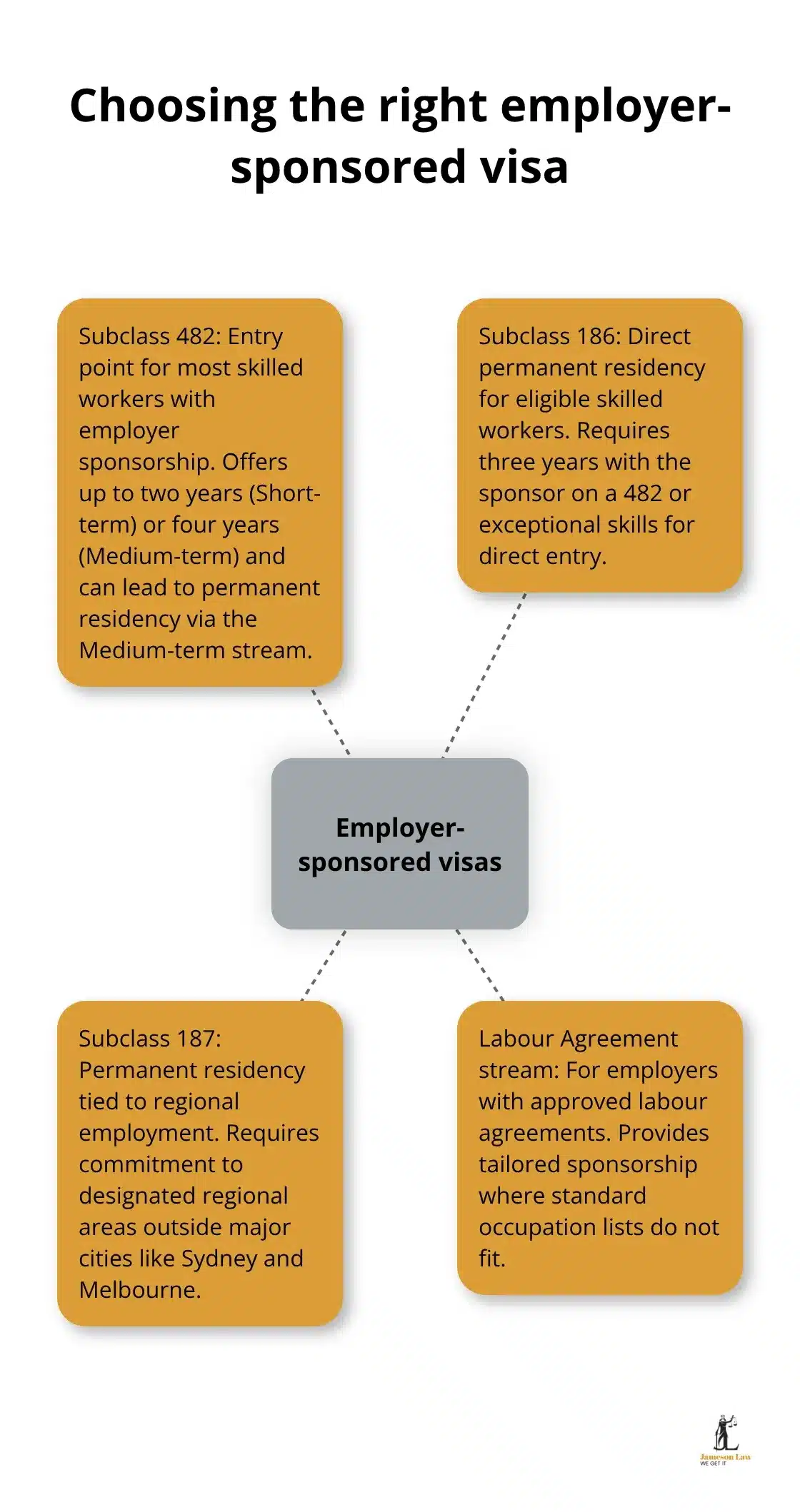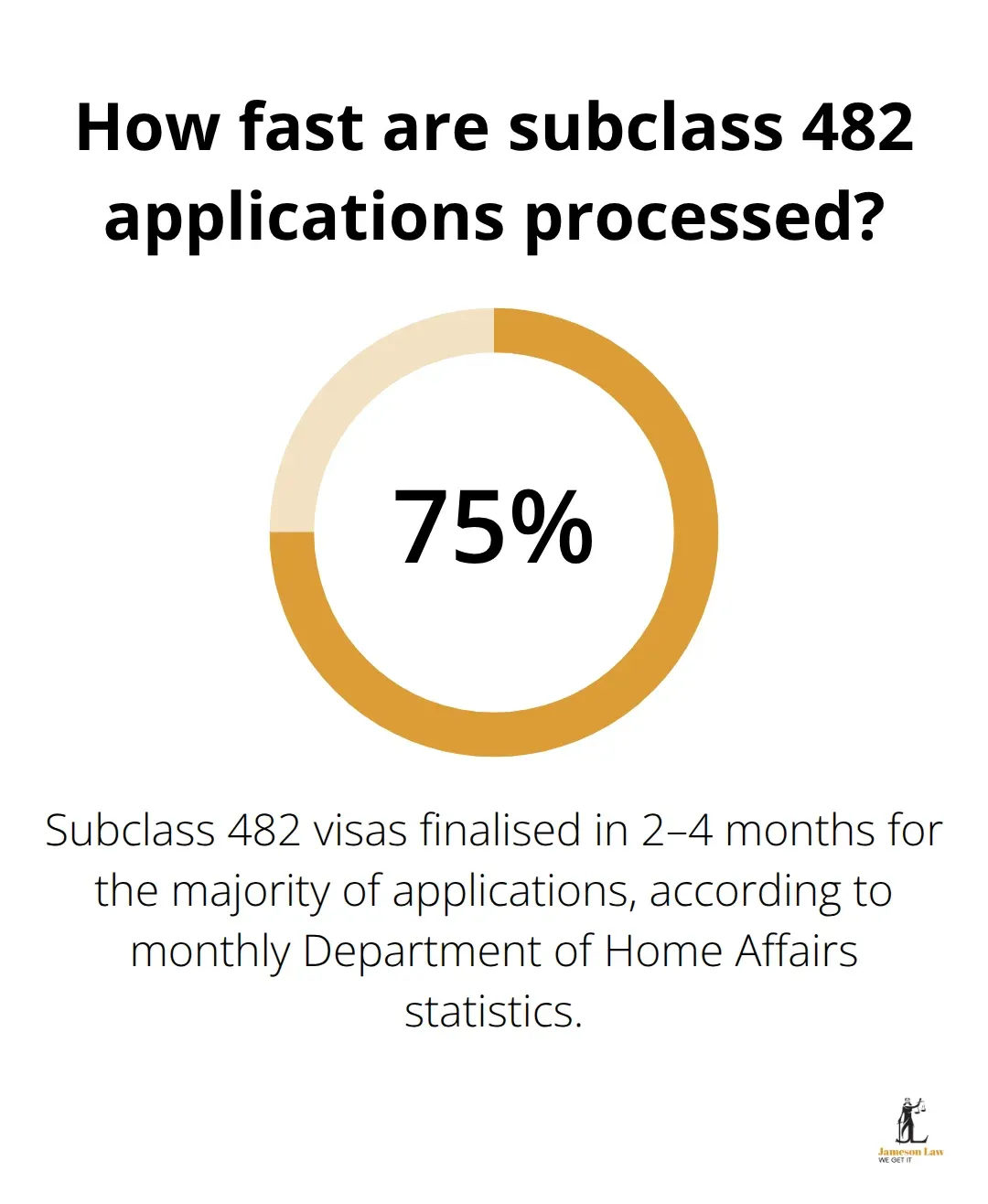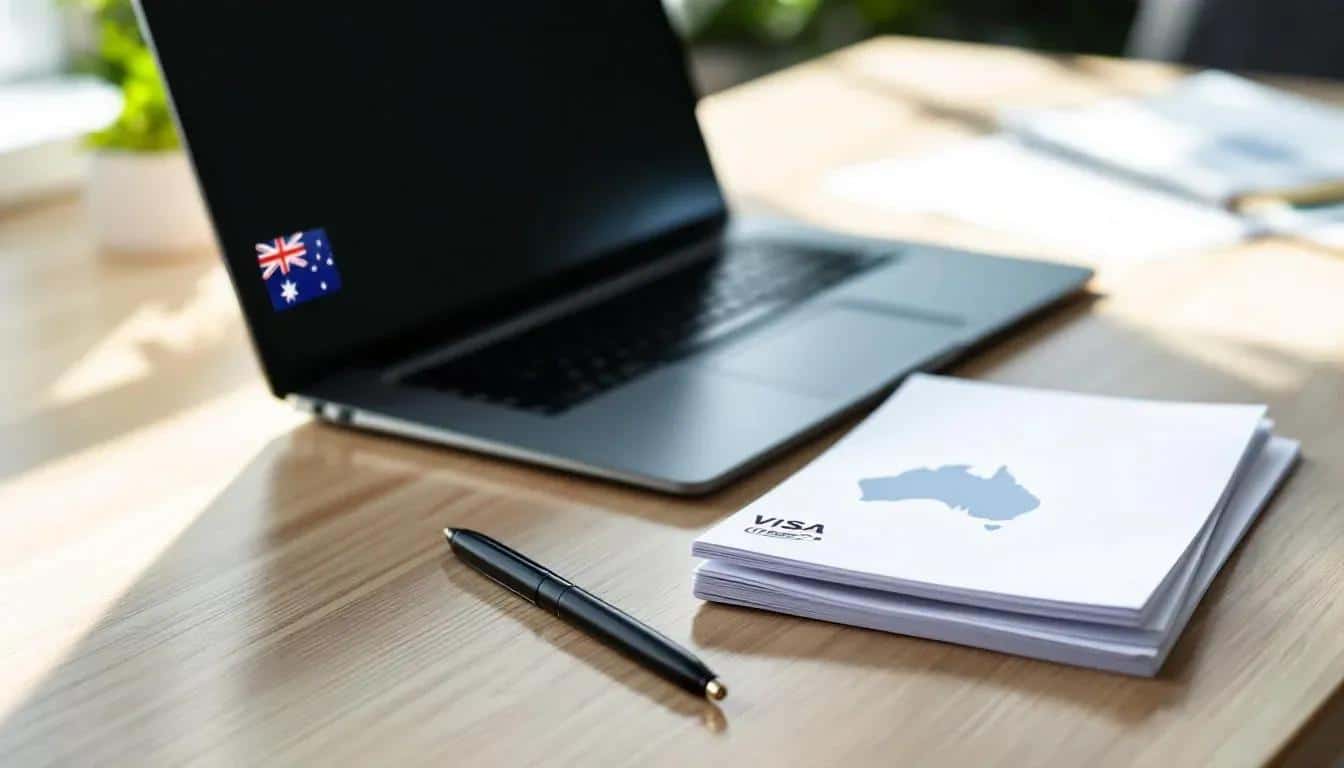Australia’s skilled worker shortage has created significant opportunities for international professionals seeking employment down under, particularly in commercial hubs like Sydney. Meeting work visa Australia requirements can seem complex, but understanding the process makes it manageable.
We at Jameson Law, as leading immigration lawyers in Sydney, have guided hundreds of applicants through successful visa applications. This comprehensive guide breaks down everything you need to know about documentation, eligibility criteria, and application timelines.
Which Work Visa Suits Your Career Goals?
Australia offers three primary employer-sponsored work visa pathways, each targeting different career stages and employment arrangements. The Temporary Skill Shortage subclass 482 visa serves as the entry point for most skilled workers and allows initial employment for up to four years while workers build toward permanent residency. This visa requires employer sponsorship and targets occupations listed on Australia’s skilled occupation lists, with processing times currently averaging 2-4 months according to the Department of Home Affairs.

Temporary Skill Shortage Visa (Subclass 482)
The subclass 482 visa provides the most accessible pathway for skilled workers who want immediate employment opportunities in NSW and across Australia. Employers must sponsor applicants and demonstrate genuine attempts to recruit locally (Labour Market Testing) before they can sponsor foreign workers. The visa includes three streams: Short-term, Medium-term, and Labour Agreement. Workers on the Medium-term stream can often apply for permanent residency after three years with their sponsor, a common strategy for our clients in Parramatta and Sydney.
Permanent Pathways Through Employer Sponsorship
The Employer Nomination Scheme visa (Subclass 186) provides direct permanent residency for skilled workers. Applicants need either three years of experience with their sponsor on a subclass 482 visa or demonstrate exceptional skills in their nominated occupation. For those willing to work outside major metropolitan areas, regional visas offer similar permanent residency benefits but require a commitment to work in designated regional areas.
Strategic Visa Selection Based on Career Timeline
Smart applicants choose their visa pathway based on career objectives. The subclass 482 works best for professionals who want immediate employment while maintaining options for permanent residency. Workers targeting permanent residency from the start should pursue subclass 186 if they meet direct entry requirements. The skilled migration pathway processes over 70% of permanent visas through a points-based system that favours younger professionals, a key consideration for work visa Australia requirements.
What Documents Do You Need for Your Work Visa Application?
Skills assessments form the backbone of successful work visa applications. Engineers Australia typically processes applications within 4 to 8 weeks, while Trades Recognition Australia completes assessments for trade professionals. The Australian Computer Society (ACS) handles IT professionals. Applicants must submit certified copies of qualifications, employment references covering at least three years, and detailed job descriptions that match their nominated occupation exactly.

Skills Assessment Requirements by Profession
Different professions face unique assessment criteria. Healthcare professionals must complete assessments through the Australian Health Practitioner Regulation Agency (AHPRA), which can take 10-16 weeks. Accountants apply through CPA Australia or Chartered Accountants ANZ. Teachers need assessment from the Australian Institute for Teaching and School Leadership (AITSL). Understanding these timelines is crucial for meeting work visa Australia requirements without delays.
English Language Requirements That Actually Matter
IELTS remains the gold standard for English proficiency, with most work visas requiring minimum scores of 6.0 in each band. PTE Academic offers faster results within 2-5 business days. The Department of Home Affairs accepts test results valid for three years. Professionals in health sectors, such as registered nurses, face stricter requirements, often needing IELTS scores of 7.0 (or equivalent) to practice in NSW hospitals.
Health and Character Clearances That Prevent Delays
Medical examinations must be completed by Bupa Medical Visa Services (the approved provider in Australia) or panel doctors overseas. Character checks require police certificates from every country where applicants lived for 12 months or more since turning 16. Processing times vary from 2 weeks for Australian Federal Police checks to 12 weeks for some international jurisdictions.
Document Certification and Translation Standards
All foreign documents require certified translation by NAATI-certified translators. Applicants must provide certified copies of all documents. Educational transcripts need apostille certification for countries that signed the Hague Convention. These certification processes add 2-4 weeks to preparation timelines, so early action prevents application delays that could affect your employment start date in Sydney.
How Long Does the Work Visa Application Take?
Application Package Preparation Timeline
Document preparation takes 6-8 weeks minimum when completed properly. Most delays come from incomplete skills assessments and missing police certificates. Start your preparation at least 12 weeks before your intended employment start date. Critical documents include certified educational transcripts and employment references covering your last three positions. For expert assistance, consider consulting Jameson Law Sydney early in the process.
Online Lodgement Through ImmiAccount
The Department of Home Affairs processes all work visa applications through their ImmiAccount portal. Upload all documents in PDF format to prevent system errors. The system automatically generates a Transaction Reference Number (TRN) upon successful submission. Application fees vary significantly between subclass 482 and subclass 186 visas, payable through the secure portal.
Processing Timeframes and Realistic Expectations
Current processing times vary significantly by visa subclass. Subclass 482 visas often take 2-4 months, while Subclass 186 applications can take 8-18 months. Applications from high-volume regions may face longer processing times due to additional security checks.

Final Thoughts
Meeting work visa Australia requirements demands strategic preparation and careful attention to detail. You must start your application process 12-16 weeks before your intended employment date to accommodate skills assessments, document certification, and processing delays.
Most application failures result from incomplete skills assessments or expired English test results. Another frequent mistake involves submitting applications without confirmed employer sponsorship. Professional immigration assistance becomes valuable when your occupation requires complex skills assessment processes.
We at Jameson Law help applicants navigate Australia’s visa requirements and avoid costly delays through proper documentation. Our team of immigration lawyers in Sydney provides expert guidance to maximise your chances of approval. Contact us today to secure your future in Australia.













